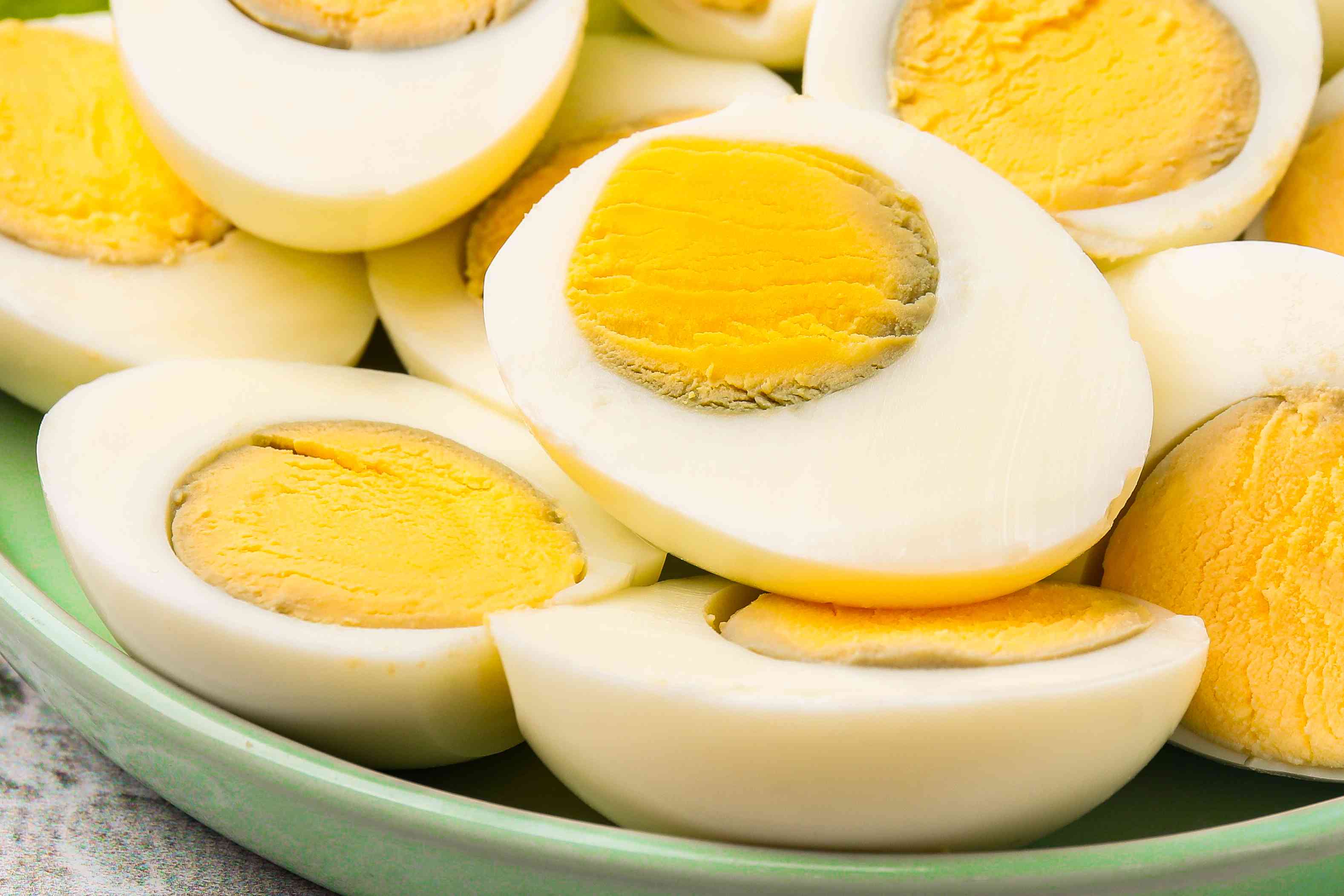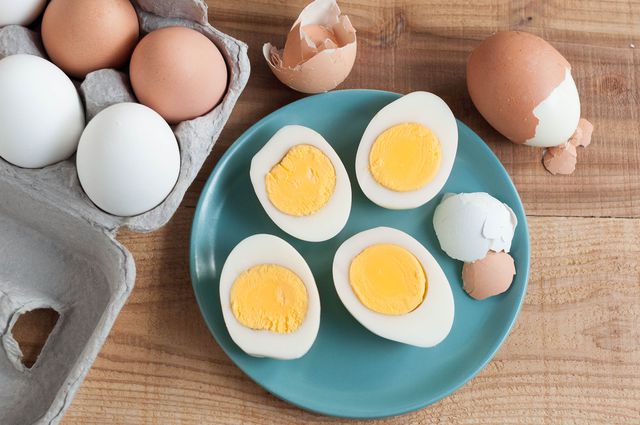We've always wondered...

It’s so disappointing when you slice open a boiled egg and see a green ring around the yolk. But what causes that discoloration, and is the egg still okay to eat?
What Causes a Green Ring Around the Yolk?
“A green ring sometimes seen around the yolk of a hard-boiled egg results from a reaction between sulfur in the egg white and iron in the yolk,” says Alexandra Kazaks, PhD, member of the Institute of Food Technologists’ Nutrition Division. “This reaction produces ferrous sulfide, a compound with a greenish-gray color. The ring appears where the yolk and white meet.”
This reaction typically occurs when the eggs are not particularly fresh or if they have been overcooked. According to Kazaks, "As the cooking time increases and the temperature rises, the sulfur and iron reactions become more noticeable." She clarifies that this process turns the yolk green due to these chemical interactions.
- Boiling an egg for extended periods facilitates the decomposition of proteins within the egg whites, leading to increased liberation of sulfur and iron.
- Heating eggs at elevated temperatures accelerates that chemical process.
- When the eggs cool down gradually, that chemical reaction keeps occurring, which promotes the formation of a green ring.
Even though the ring may look out of place in your deviled eggs, there’s nothing dangerous about it. “The green ring is harmless,” Kazaks says. “It's just a sign of prolonged heat exposure or older eggs. While it may affect the egg’s appearance, it does not indicate the egg is unsafe to eat.”
Does the Green Ring Affect Taste or Texture?
Because the green color can be caused by cooking an egg too long, overcooking can affect the taste and texture. “In general, overcooking eggs can make the whites rubbery and yolks seem dry and chalky, and they may even have a faint sulfur smell that affects the taste,” says Kazaks. “However, a green ring is mostly a visual issue, not something that significantly affects flavor or texture.”

How to Prevent Green Rings on Boiled Eggs
The best way to prevent a green egg ring is by boiling and cooling the eggs just right. Kazaks says to start with fresh eggs, if you can find them. They have a higher pH, which lowers the production of hydrogen sulfide gas.
She suggests cooking eggs at a gentle simmer and not a rolling boil, then timing the cooking depending on what degree of doneness you want. After, place the cooked eggs in an ice bath to stop any further cooking and chemical reactions.
Read More: Finally Make Perfect Hard Boiled Eggs With This Foolproof Approach
The Best Way to Boil an Egg
When it comes to getting a great boiled egg every time , experts and home chefs are divided if you start with your eggs in cold water or boiling water.
“Starting eggs in cold water means the eggs heat up gradually, which helps cook them more evenly and reduces the chance of cracking. However, it requires some careful timing,” Kazaks says. “On the other hand, putting eggs straight into boiling water cooks them faster, but also a higher risk of cracking, especially if the eggs are cold.”
Whichever way you decide, Kazaks offers a tip to make peeling eggs easier . “After cooling, gently tap the egg on a hard surface to crack the shell. Roll it slightly to loosen the shell, then peel from the wider end where there’s usually an air pocket,” she says. “Peeling the egg under cold running water can help wash away any small shell fragments and make the process smoother.”
Read the original article on